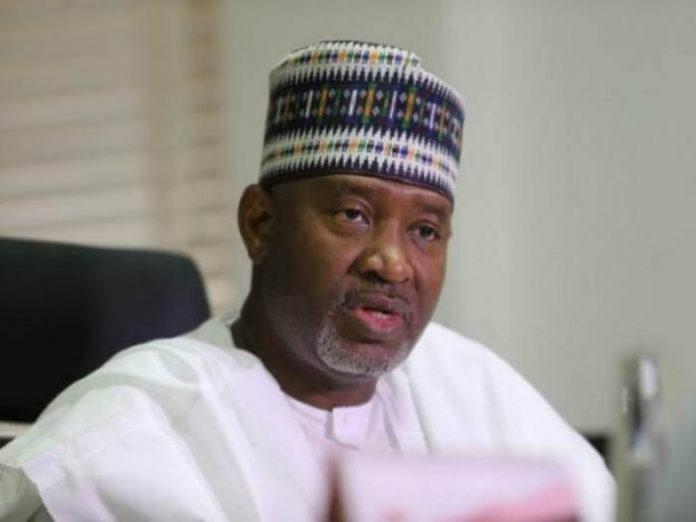The aviation roadmap unveiled by the Minister of Aviation, Senator Hadi Sirika, seven years ago, has continually faced scrutiny. It has been a subject of one controversy or another and industry experts are beginning to doubt whether most of the projects under the roadmap will see the light of the day in the remaining six months of the present administration.
Sirika is no doubt fastidious about delivering the projects under the roadmap including the national carrier; the Maintenance, Repair and Overhaul (MRO) facility; the Aviation Leasing Company (ALC); Aerotropolis, Airport concession and the development of agro-allied cargo terminals.
Man seeks divorce over ritual accusation
Experts say the roadmap components are so far-reaching that would drive the development of the sector but its implementation has been a subject of intense controversy, suspicion and misgivings in the aviation industry.
Industry stakeholders have also questioned the failure of the government to deliver any of the projects in the last seven years and doubt if something meaningful would be achieved in the next seven months.
For instance, the National Carrier project was mooted as soon as the Buhari’s administration took over in 2015. Though the government was commended for settling partly the gratuities and arrears of the retirees of the defunct national carrier, Nigeria Airways, the move to set up the national carrier has dragged until now.
Now that the government has made progress with floating Nigeria Air, the misgivings have grown further over the shareholding structure adopted by the federal government which gives the controlling share to Ethiopian Airlines (ET).
The government has defended the choice of ET, which is to have 49 per cent stake in Nigeria Air, saying it was only ET that met the deadline for the submission of a proposal to be the foreign technical partner for the national carrier.
Furthermore, government said its share in the airline would not be more than five per cent while SAHCO, MRS and other Nigerian entrepreneurs would have the remaining 46 per cent.
Now the project seems to be taking a new dimension with the suit instituted by the trustees of the Airline Operators of Nigeria (AON) at the Federal High Court in Lagos challenging the decision of the government to select Ethiopian Airlines as the equity partner for the airline.
They argued that selecting ET to manage the proposed airline would open the domestic market to the airline and decimate the local carriers.
The airports’ concession, another critical component of the roadmap, has also been faced with numerous challenges right from inception.
Unions in the aviation sector, including pensioners, vehemently oppose the move to concession the four airports – Murtala Muhammed International Airport (MMIA), Lagos; Nnamdi Azikiwe International Airport (NAIA), Abuja; Port Harcourt International Airport and Mallam Aminu Kano International Airport, Kano.
Sirika, in October, announced the preferred and reserved bidders for some of the airports.
The minister noted that out of the four airports and cargo terminals as approved for concession under the programme, only three could meet the deadline of September 19, 2022.
Even this ran into muddy waters as Sifax Group of Companies Limited has asked a Federal High Court in Lagos to disqualify Tav Airports Holding Company and GMR Airport Limited from the Murtala Muhammed International Airport (MMIA) concession bid.
And now comes another controversy with the alleged plan to demolish some offices of the aviation industry in Lagos for the implementation of the Airport City project.
The minister had earlier ordered all aviation agencies to relocate their headquarters to Abuja, which has been complied with as the CEOs of the agencies immediately relocated with some Directors of the agencies but a large percentage of staff of the agencies are still in Lagos offices.
During their recent congress the unions in the industry- National Union of Air Transport Employees (NUATE), Air Transport Services Senior Staff Association (ATSSSAN) and Association of Nigeria Aviation Professionals (ANAP)- challenged the move to demolish the buildings and the implementation of the roadmap and called for its stoppage.
They called on the Federal Executive Council (FEC) to conduct a comprehensive forensic audit on it.
“For inexplicable reasons, none of the above projects has been delivered up till now. It is, therefore, not surprising that the hon. minister is presently in a frenzy in an effort to deliver these projects, being that this administration is at its twilight. This rush to deliver at all cost has expectedly occasioned suspicion and a plethora of missteps which if not corrected will spell doom for the aviation industry in Nigeria, and which may prove exceedingly costly to amend in future.
“To be clear, we agree that these projects are vital for the good health of the industry. That the current administration does not own the credit for conceptualising these projects, and that Aviation Road Map has been a recurrent theme in the ministry for as long as one can call to mind underscores the relevance of these projects to the improvement of the Nigerian aviation industry.
“Truth be told, the fact that these projects remain undelivered to this day is an attestation to the tardiness of successive federal regimes over the years. This means that our unions will join other Nigerians to celebrate the delivery of the Road Map. But, we have to seriously worry about the manner of delivery. More crucially, we are concerned about whether what is being delivered is actually what Nigerians crave. That is the crux of the matter,” the unions said in a communique.
They commended the government for doing well in airport modernisation and provision of airspace facilities, which have improved flying experience, but added that they were worried by the “ongoing bastardisation of the lofty objectives of the Aviation Road Map’’.
The unions also called on the Nigerian Labour Congress (NLC), the Trade Union Congress of Nigeria (TUC), and Civil Society Organisations to mobilize all Nigerian workers and the Nigerian people “to join in our effort to rescue our common patrimony from the grasp of the powers that be in the aviation industry.
“We consider that this plan, in the name of the so called aerotropolis, is ill intended, ill advised, and wrongly timed. We hereby serve notice that any attempt to demolish any of these buildings at this time will be met with immediate action of cessation of work at all airports in Nigeria accompanied by public demonstrations nationwide.”
With the controversy over the roadmap implementation still lingering, experts call for caution in rushing to implement a project which would not stand the test of time.
Aviation analyst and managing partner, Avaero Capital, Sindy Foster, said, “For seven years we didn’t really see much being done. Lots of talk, but insignificant actions. Then all of a sudden the Ministry of Aviation is a hive of activity. The timing appears to be politically motivated rather than what the industry needs at this time. So it raises several question marks.
“The lack of impact assessment and absence of feasibility studies in relation to the current operating environment and bilateral air service agreements means we could end up with unintended negative consequences. I don’t know anywhere that would not take all things into consideration, including whether it is the right thing to do, at this time, with all the economic challenges Nigeria is facing. Even looking more in the longer term, is this what Nigeria needs? Or should they have come up with something more sustainable which will benefit Nigeria in the longer term?”
She agreed with the unions who are calling for the audits of the roadmap, saying, “there is nothing wrong with seeking an audit of all the funds expended, and additionally a value for money assessment needs to be done. Some of the figures quoted as having been expended over the last seven years are staggering”.
Group Capt. John Ojikutu, an Aviation analyst, also expressed worry over the rush in the implementation of the roadmap in an election year.
“From 2017 when the roadmap was defined we barely have made efforts to develop. From the national carrier to airports concessions, MRO, Aerotropolis, etc and we have started adding more on cargo airports development for some states; all these are coming six months towards the end of the administration. I am not sure that we have sufficient funds that can effectively complete 30 per cent of any of the projects within the remaining term of this administration. There are no sufficient funds in the government coffers to begin any, neither is there confidence built in the projects by foreign investors.
But Sirika insisted the implementation of the roadmap would generate $14bn for the industry in addition to raising aviation contribution to the Gross Domestic Product (GDP) to five percent. How this would be achieved in six months remains in the realm of hunches.

 Join Daily Trust WhatsApp Community For Quick Access To News and Happenings Around You.
Join Daily Trust WhatsApp Community For Quick Access To News and Happenings Around You.


